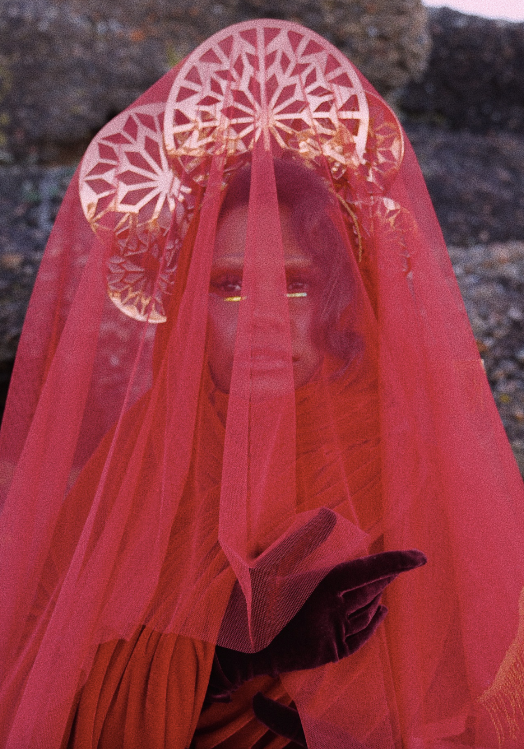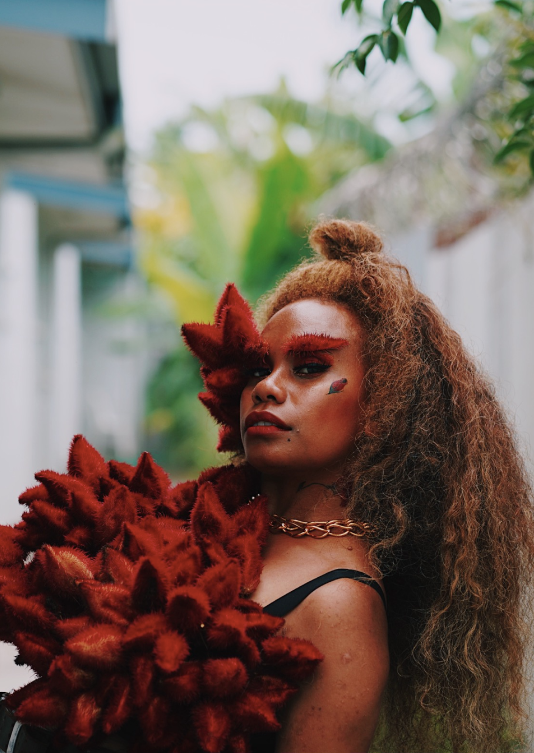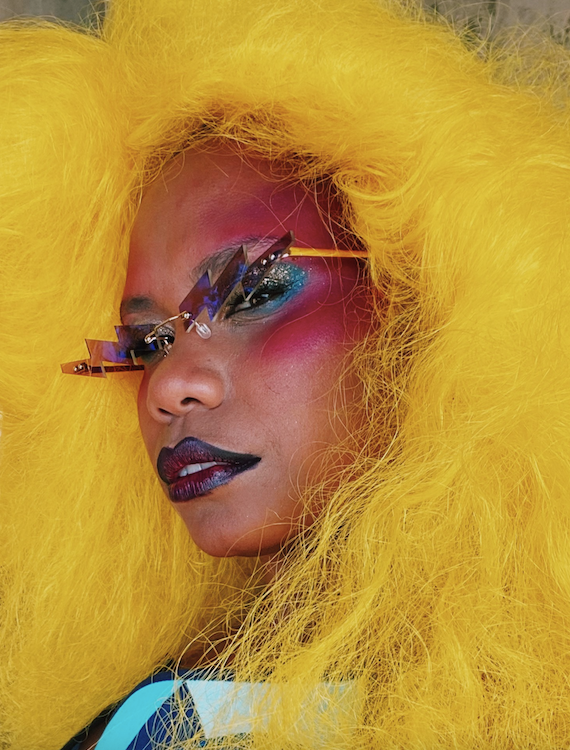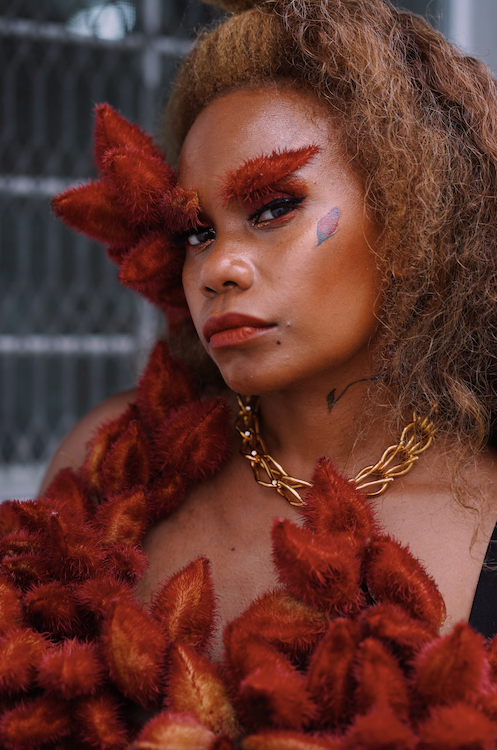Not everyone is going to ‘get’ Ngaiire, and the personal journey the Papua New Guinean, Australian-based R&B soul singer undertook while putting her third album, 3 together made her realise that being a multi-faceted woman of colour is perfectly acceptable, even if it causes people to shift uncomfortably in their seats.
In her own words, Ngaiire (pronounced Ny-ree) is a bit odd, a bit queer. Known for her boisterous costumes, stellar vocals and tight beats, she knows the music industry has struggled to put her in a box for years – “I constantly had to field useless enquiries from white people who wanted to know if we all still ate people, or why I was so pretty for a Papua New Guinean” – and doesn’t beat around the bush about not being “the right kind” of black to be commercial enough.
Full of joy, but also a little (rightfully!) angry, Ngaiire feels a walking contradiction at times – torn between her Papua New Guinean roots while now living in Sydney in a predominantly white space that operates on stolen indigenous land.
She’s just turned 37 when Headliner speaks to her; “a bit past the used by date according to industry standards because [I] had a baby, but fuck it, I’d like to see you pull a human out of your dick whilst creating an album!”
Although she doesn’t always channel this fiery defense – she’s fun and self-deprecating during our interview – at once philosophical and down to earth – and she doesn’t take herself too seriously. She celebrated her lockdown birthday with a Zoom party (Ngai Paul’s drag race: prison hoes & lockdown woes), where her friends dressed in drag and performed her songs to her.
She likes tequila and margaritas, doesn’t drink coffee – “it makes me crazy” – and she’s a bit obsessed with death, sex, life, spirits, fashion, expensive cocktails, art, board games, rice and bully beef, sitting on the beach all day, and living beyond her means.
“And definitely not your normal cup of tea out of a fucking dainty little English teacup,” she says, grinning wickedly.
“As much as I’ve tried to pour myself into that teacup over the years, I’ve accepted that I’m really better suited to a brilliantly well-charcoaled aluminium kettle full of black tea leaves cooked on a very lived-in fire built upon the soil that smells like my mother, my Aine, my Pupu and those that came before who said, ‘reach for the stars but always come back to us’.”







